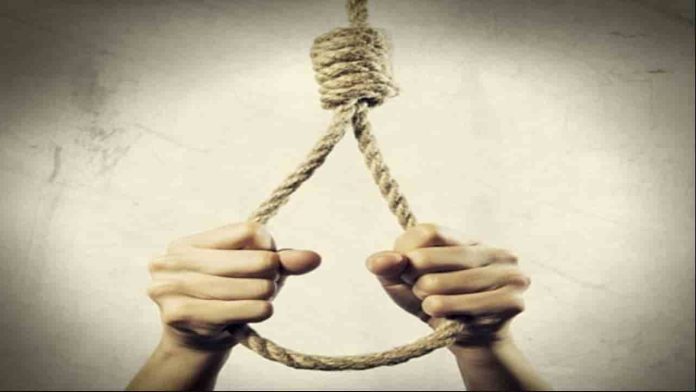Due to the rising number of suicides among NEET and JEE aspirants, many educational institutes in Kota have implemented various measures such as installation of spring-loaded fans in all rooms of students. This year, 23 suicides among students have been reported from the coaching hub. Two ended their lives on the same day, August 27, 2023.
Reports indicate that over 13,000 students all over India committed suicide in 2021, at a rate of more than 35 every day. This is a rise of 4.5% from the 12,526 deaths in 2020.
While the decision to install spring-loaded fans may be a good initiative to prevent student suicides, this isn’t a full-proof solution. Students need a more guided approach and reassurance to combat feelings of stress, loneliness and pressure.
Expressing concern over the rising cases of student suicides in Kota, Rajasthan Chief Minister Ashok Gehlot last month directed officials to form a committee to provide suggestions to prevent them. The committee will be comprised of all stakeholders, including representatives from coaching institutes, parents and doctors.
Speaking at a review meeting on suicide cases among IIT and NEET aspirants in the coaching hub, the chief minister highlighted the burden being put on students studying in Classes 9 and 10. Enrolling such students in coaching institutes puts an extra burden on them as they also have to appear for board exams, Gehlot said. “You call students of Class 9th and 10th. You are committing a crime in a way. It is like as if IIT is god. As soon as students come to coaching, they are enrolled in fake schools. It is also the fault of parents,” he said. “Students are enrolled in dummy schools and they do not go to school. They have the dual burden of clearing board exams and to prepare for the entrance exam.” He added that it was not just Rajasthan’s but the entire country’s problem.
The meeting also discussed National Crime Records Bureau (NCRB) data on student suicides. According to NCRB, around 13,000 students died by suicide in 2021, with Maharashtra recording the maximum number at 1,834 deaths, followed by Madhya Pradesh (1,308), Tamil Nadu (1,246), Karnataka (855) and Odisha (834).
Rajasthan Minister of State for Education Zahida Khan also urged coaching institutes not to turn into “money-making machines”. Another minister, Pratap Singh Khachariyawas, said coaching centres were “only engaged in accumulating money”. “I want to tell the parents, too, that their kids are not getting ahead because of coaching, but because they are smart. You give money to coaching centres and they threaten and trouble your kids. What right do the coaching people have to hold exams every second or third day and misbehave in class? They demoralise them,” he said.
He further said: “The chief minister has given power to SPs (superintendents of police). The SP and the collector should not come under the influence of coaching centre owners. They should take action as suggested by the CM. If they don’t take action, the public will. I have not heard a single coaching centre operator coming forward and expressing sorrow. They are only engaged in accumulating money.” He also asked why coaching centres were not installing nets to stop students from jumping from their buildings. A 17-year-old student in Kota had jumped to his death from the sixth floor.
Rajasthan’s Minister of Higher Education Rajendra Singh Yadav slammed coaching institutes for being “purely commercial”. He said that the state government was working on introducing a law that would regulate the largely unorganised industry. “We are working on an umbrella Act to put a check on coaching centres, on issues such as deciding fees. A law will be made on this. It is the moral duty of coaching centres,” Yadav stated.
The government was also trying to bring the entire higher education system and all stakeholders under one umbrella and mulling over putting checks on misleading marketing tactics by coaching institutes, he added. “We are considering putting some checks on their hoardings and boards. They market their institutes by highlighting the toppers, but don’t say how many students study at their institutes. If 20,000 students take coaching at an institute and, out of them 30 are toppers, then this is something natural,” he remarked.
Meanwhile, the Opposition has slammed Gehlot and his administration for the rising number of suicide among students, terming the disturbing phenomenon a “failure of the state government”. BJP MP from Rajasthan Rajyavardhan Singh Rathore said: “The youth in the state is committing suicide, and they are becoming helpless. Every year, 5,500 youth commit suicide in Rajasthan. They are taking place due to coaching, REET (Rajasthan Eligibility Examination for Teachers) scam and unemployment. It is the responsibility of the government to take necessary steps.”
There are many social and interpersonal factors that lead students to take this extreme step. India is witnessing a higher prevalence of mental health issues in adolescents because of reasons such as fear of academic failure, parental pressure or neglect, bullying and a negative environment. At times, there’s a history of mental illness in the family. There is a need to shift the focus from academic performance to holistic growth. Parents, teachers, and campus administrators need to motivate students to embrace a 360-degree approach to life that includes academics, sports, extra-curricular activities and time for fostering social connections.
More importantly, stakeholders need to assure students that academic achievement and excellence are not the only yardsticks to measure their abilities and skills. Parents need to convince children of their unconditional support and love and keep communication channels open instead of being critical. This approach can go a long way in helping students cope with feelings of stress and loneliness.
—By Abhilash Kumar Singh and India Legal Bureau


